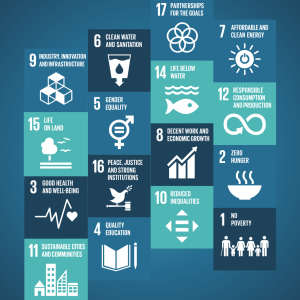
Indicators in this domain assess the extent to which migrants have the same status as citizens in terms of access to basic social services such as health, education, and social security. It also describes the rights of migrants to family reunification, to work, and to residency and citizenship. The ratification of the main international conventions is also included within this domain.
Indicators in this category look at the extent to which migrants have access to certain social services such as health, education and social security. They also examine measures to ensure integration and access to work.
Indicators in this domain assess countries’ institutional, legal, and regulatory frameworks related to migration policies. Domain 2 also reviews the existence of national migration strategies that are in-line with development, as well as institutional transparency and coherence in relation to migration management. This domain also investigates the extent to which governments collect and use migration data.
Indicators in this category assess the institutional frameworks of cities for migration. This area also examines the existence of migration strategies consistent with development objectives, as well as institutional transparency and coherence in migration management.
This domain focuses on countries’ efforts to cooperate on migration-related issues with other states and with relevant non-governmental actors, including civil society organizations and the private sector. Cooperation can lead to improvements in governance by aligning and raising standards, increasing dialogue and providing structures to overcome challenges.
Indicators in this category focus on cities’ efforts to cooperate on migration issues with the national government as well as other cities and relevant non-governmental actors, including civil society organizations and the private sector.
This domain includes indicators on countries’ policies for managing the socioeconomic well-being of migrants, through aspects such as the recognition of migrants’ educational and professional qualifications, provisions regulating student migration and the existence of bilateral labour agreements between countries. Indicators equally focus on policies and strategies related to diaspora engagement and migrant remittances.
Indicators in this category assess cities’ initiatives in terms of international student mobility, access to the labour market and decent working conditions for migrant workers. Aspects related to diaspora engagement and migrant remittances are also included in this domain.
This domain studies the type and level of preparedness of countries when they are faced with mobility dimensions of crises, linked to either disasters, the environment and/or conflict. The questions are used to identify the processes in place for nationals and non-nationals both during and after disasters, including whether humanitarian assistance is equally available to migrants as it is to citizens.
Indicators in this category examine the type and level of readiness of cities to deal with aspects of mobility crises. The questions focus on the processes in place for citizens and non-citizens both during and after disasters, especially if humanitarian assistance is available for migrants and citizens.
This domain analyses countries’ approach to migration management in terms of border control and enforcement policies, admission criteria for migrants, preparedness and resilience in the case of significant and unexpected migration flows, as well as the fight against trafficking in human beings and smuggling of migrants. It also assesses efforts and incentives to help integrate returning citizens.
Indicators in this category look at the cities’ approaches to migrant safety as well as return and reintegration policies and the fight against trafficking in persons.
This country profile describes well-developed areas and areas with potential for further development in the Portuguese Republic’s (hereafter Portugal) migration governance structures, as evaluated by the six domains of the Migration Governance Indicators (MGI). These address migrants’ rights, a “whole-of-government” approach, partnerships, socioeconomic well-being of migrants, the mobility dimension of crises, and safe and orderly migration.
Click the icons on the wheel to explore the key findings.
The Migration Governance Indicators (MGI) initiative is a policy-benchmarking programme led by the International Organization for Migration (IOM) and implemented with the support of the Economist Intelligence Unit. Funding is provided by the Government of Sweden.
Migration Governance: examples of well-developed areas:
- All immigrants, regardless of their legal status, can access national health services.
- All immigrants have access to primary, secondary and tertiary education, as well as to pre-school.
- Immigrants with temporary or permanent residence permits, as well as those with refugee or subsidiary protection status, can apply for family reunification. Applications for a residence permit and family reunification can be completed at the same time.
- Immigrants who have been living in Portugal with a temporary residence permit can apply for a permanent residence permit after five years.
- Immigrants have the same rights to private sector and self-employment as nationals, except if they have volunteer, student or internship visas.
Areas with potential for further development:
- Only certain foreign residents are permitted to vote in local elections.
Migration Governance: examples of well-developed areas:
- Portugal has a comprehensive legal and policy framework on migration, which covers the conditions and procedures for the entrance, stay and departure of foreigners from Portuguese territory. It also outlines different types of visas and residence permits as well as immigrants' rights.
- Information on migration regulations and criteria can be easily consulted by the public on various government agencies’ websites and is available in Portuguese and English.
- Comprehensive data on immigration is collected and published by the Government on a regular basis.
- The current strategic plan for migration (2015-20) aims to improve immigrants' integration and the coordination of migration flows, as well as to reinforce the legal framework on migration and to provide incentives for emigrants to return to the country.
Areas with potential for further development:
- Data on immigrants could be collected and disaggregated by ethnicity, as internationally recommended by the Committee on the Elimination of All Forms of Racial Discrimination (CERD).
Migration Governance: examples of well-developed areas:
- Portugal is a member of the European Union (EU), which guarantees the free movement of people across the EU and has partially harmonized immigration and refugee policies.
- The Government works with civil society organisations (including representatives of the different immigrant communities), the private sector and members of the diaspora to develop migration policies. One example is the Council for Migration, which meets up to three times per year.
- There are several formal bilateral agreements between Portugal and other countries related to migration, including on labour migration and access of migrants to social security.
Areas with potential for further development:
- Formal engagement of diaspora members in regards to policy agenda-setting could be expanded.
Migration Governance: examples of well-developed areas
- Immigrants’ skills are considered when granting visas, as reflected through various visa categories for working in Portugal.
- Portugal meets international standards for immigrants' ethical recruitment and has legislation that specifically prohibits discrimination in the labour market.
- Those with student visas in tertiary education in Portugal can enter the labour market.
Areas with potential for further development:
- Portugal is not involved in the promotion of formal remittance schemes.
- There is scope for producing regular national assessments of the effects of emigration and immigration on the domestic labour market.
Migration Governance: examples of well-developed areas:
- Humanitarian visas and refugee status are available in Portugal for people from countries experiencing crises.
- Immigrants, regardless of their legal status, have access to humanitarian assistance during crises.
- Responsibility for immigration-related issues in crisis and post-crisis situations is defined in the National Plan for Emergency Civil Protection.
- The Consular Emergency Cabinet provides 24/7 emergency consular assistance to Portuguese nationals living abroad in situations of crisis. It also maintains an online platform to register nationals travelling and living abroad.
Areas with potential for further development:
- The main channels of information that are used in situations of crisis are television and radio. These systems do not take into consideration specific vulnerabilities of immigrants and potential language barriers.
- There is scope to develop strategies to address migratory movements caused by environmental degradation and the adverse effects of climate change.
Migration Governance: Examples of well-developed areas:
- There is a dedicated body tasked with integrated border control and security, the Immigration and Borders Service.
- Immigrants’ admission and eligibility criteria are transparent to the public online.
- Visas can be granted prior to arrival by applying at Portuguese consulates.
- Portugal has several incentive programmes to attract emigrants back to the country, including tax breaks.
- Portugal has a National Strategy to Prevent and Combat Human Trafficking (2007), which has consecutive three-year action plans and is supported by an inter-ministerial working group.




